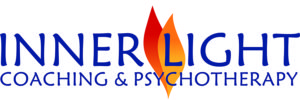What to Expect in Couples Counseling
Ah, Springtime: Spring cleaning, Spring flings, Spring fever. Spring is a time of high energy, renewal, and often focus on relationships. Over the winter months you may have been thinking about changes you’d like to make for yourself, your life, or your relationships, and find that at this time of year you have the energy and enthusiasm to really begin working on these changes. However, if you’ve been thinking about couples counseling as a path to improving your relationship, you may find that prospect unknown, unclear, daunting, or even frightening. This month’s article outlines some of what guides my counseling with couples to help demystify the process.
Having a successful, healthy, and rewarding relationship requires the ability to be relational. This relational ability is different from being independent, autonomous, and self-actualized, and it requires different capabilities and skills. One way to think about the difference is by picturing the distinction between getting and feeling a sense of individual justice and validation following an argument versus feeling harmony and strong connectedness following an argument. To be relational it’s helpful understand what being relational is and what is opposed to being relational, and it is necessary to develop emotional capacities and behaviors that support relationships.
Regardless of a couple’s specific goals for counseling, in general couples counseling is guided by the overarching objective to improve relational health, and counseling proceeds on several different levels. One level begins with how, as individuals, partners make sense of what is happening in the relationship. Based on our prior life experiences, we all interpret others’ behavior, assign meanings, and have emotional reactions. Sometimes these meanings are accurate and other times the conclusions we draw are incorrect. Counseling involves spending time working on how each partner experiences the others’ behavior and understanding the meanings the behaviors have to each personally. Alone these insights can help partners be more understanding of one another and feel less defensive.
The cognitive level of work, or making sense of what’s happening, informs another level of work that is all about the emotional. We all have valid emotional reactions to how we interact with our partners. However, depending on how we interpret others’ behavior and assign meanings, again often based on our prior life experiences, our emotional reactions may be charged or intensified. This charge can lead to more extreme emotional reactivity than may be appropriate for given situations or interactions. Thus therapy includes time exploring in what instances each partner may have emotional sensitivities and reactivity. Once sensitivities and reactivity are recognized, our work includes helping each partner be accountable for and manage their own extreme reactions, and be compassionate and supportive of the other in trying to manage their extreme reactions.
My work with couples on the emotional level has another element to it. Neglected needs and desires can lead to hurt, anger, frustration, and hence, conflict. Counseling is also about defining what these needs and desires are specifically for each partner. In general, some of these can be needs for autonomy, appreciation, respect, feeling accepted, and feeling cared for. Most often, understanding what each of your needs are is not enough. From that starting place counseling moves to understanding what each partner can compromise on versus what would feel like too much to give up, and then exploring how to create an environment in which each can meet the other’s needs and support the other in giving what is being requested of them.
Working on the cognitive and emotional levels naturally brings in a 3rd level of work that is about how to change behaviors. In the course of couples counseling we look at which behaviors aren’t working within the relationship. As we all learn throughout life, changing behaviors often takes more than simply recognizing that they’re not working. It takes understanding the roots of the behavior including motivations, emotional meanings, and reactivity. It takes changes in thinking, coaching in new skills, and support in practicing new skills. Here is where the specifics of what is learned in the cognitive and emotional work is tied into individual behaviors and choices, and where desired behavioral changes are identified and supported.
There is another overarching component to therapy that is about the fact that therapy brings up challenges. My intent as a therapist is to create a safe, non-blaming environment for the often very emotional challenges that arise, while recognizing that some of the work happens as a result of people feeling uncomfortable and being challenged. An integral part of my counseling is helping each partner feel supported enough to confront and work through difficult material.
There are no guarantees for specific outcomes, as therapy is a very dynamic process. Each partner’s objectives inform and guide the counseling. Ultimately everyone chooses the correct balance for themselves between individual autonomy and relational fulfillment. Therapy can be very helpful in creating a balance between these two innate needs/desires so the relationship becomes healthy for both partners.
Please know that these treatment thoughts and approaches are unique and specific to my work as a therapist based on my theoretical framework, skills, training, and experience. They may not be the thoughts or approaches applied by other therapists. There are many paths and techniques that can be effective, and my approach is just one of many.
A good reference for you on making relationships work more successfully, and on much of what couples therapy with me entails is Terrence Real’s book, How Can I Get Through to You? Closing the Intimacy Gap Between Men and Women.
If you would like to explore further how counseling can help you make changes in your life, I would love to help. Please contact me at 720-363-5538 or at heather@hlcounseling.com.
Email Newsletter
HLCounseling LLC
I am a sole proprietor in private practice, and am not a partnership associated with any other participants.




